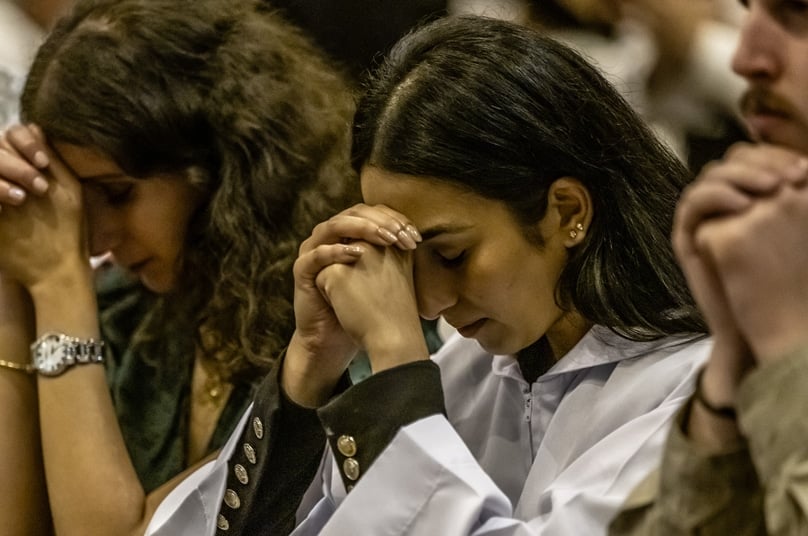
A few weeks ago, I had a chance encounter with an ex-student, and I have been thinking about it ever since.
Although 30 years had passed, Kieran recognised me and stopped me in the street. We exchanged the usual pleasantries and shared a very brief potted history of the last three decades.
To my surprise, and dominating our conversation, was Kieran’s conversion to Islam.
Kieran is a faithful Muslim. He learned Arabic to understand the Koran and worship at religious services.
He has made the pilgrimage to Mecca, fasts during Ramadan, and prays five times a day. He has raised his children to observe and practice their faith.
This is not a passing phase. Kieran converted to Islam when he was only 20 years of age.
Not long out of school, he said that he was looking for more from his Christian faith, and to his own surprise he found this in the prayer life of Islam.
For him, the regularity of daily prayer gave him a sense of purpose and was a source of inner peace.
This is not the first time that I have met someone who has discarded their religious roots. While I have known of many who have abandoned their religious practice altogether, there are also those like Kieran, who are deeply faithful, but who have found a “home” in another religious denomination or faith tradition.
This always saddens me, because I believe that many have left the church without ever really knowing what they were giving up.
While Kieran had been raised in a Catholic family and had attended a Catholic school, he had experienced a “wanting” for what was missing. Among other things, Kieran had found this in the prayer life of Islam.
The rich treasure that is the prayer life of the church shouldn’t be one of our “best kept secrets.” But for many, it remains just that.
A great number of Catholics associate their religious identity with following the teachings of Jesus, keeping the commandments and the undertaking of good works. Prayer, like Mass attendance, is often not central to their daily lives.
This is particularly evident when Christians are compared to the followers of the other Abrahamic faiths. Faithful Muslims pray five times a day and Jews three times a day. Personal and communal prayer is at the heart of these religions.
It is also at the heart and gives life to the Christian tradition. Jesus not only taught his disciples how to pray, and modelled praying to them, he gave assurances as to the benefits of prayer. “Ask and you shall receive, seek and you shall find, knock and the door will be opened to you” (Mt 7:8).
Sadly, many never avail themselves of the benefits and never know the way in which it can strengthen one’s personal faith and relationship with God.
The biennial survey of religious attitudes and practices of Years 5, 7, 9 and 11 students (Sydney Catholic Schools) have consistently revealed that fewer than 50 per cent of young people pray each day.
For many, it is an irregular practice, with 10 per cent across all age groups asserting that they never pray.
The great task for parents and teachers is to create a culture that normalises prayer. We must teach young people to pray and model it through our own example.
The impact of a healthy prayer life cannot be underestimated. Last year, when students travelled to World Youth Day, they attended Mass each day and became familiar with the Liturgy of the Hours.
Their days were punctuated with scriptural readings and the ancient prayers of the church.
Returning home to Australia, they cited this practice as one of the highlights of their time away. This wasn’t a one-off, but it is consistent with other World Youth Day pilgrim groups.
Young people need not travel overseas to have such an experience, however.
The Year of Prayer should prompt us to find ways to satisfy our spiritual yearning.
Pope Francis reflects, “prayer is the breath of faith, it is its most proper expression. Like a cry that issues from the heart of those who believe and entrust themselves to God.”
